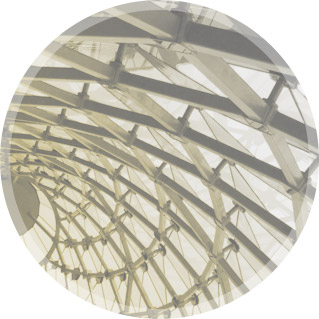Princeton University
School of Architecture
Princeton University's School of Architecture promotes a synthetic approach to architecture, drawing upon design innovation, in-depth studies in the history and theory of architecture, as well as the emerging cultures of computation and building technology. Architecture at Princeton has always been taught in this broad cultural context. Our design studios and technical courses are rigorous and demanding; they prepare our graduates to practice effectively in a competitive environment. Our history and theory curriculum, with its strong interdisciplinary ties, encourages the critical intelligence necessary to make sense of a changing world. Moreover, the School's small size enables us to integrate design and theory as no other school can, taking advantage of the overlaps and intersections between studio work and a rich culture of research and intellectual speculation. The School's programs and facilities are being constantly upgraded: this year we welcome new faculty, revamped programs, and a significant new expansion to the School of Architecture building itself. Architecture and education both require a profound commitment to a better future. As architects, we design buildings, landscapes and cities for a society whose ideas and technologies will inevitably change; as educators, we teach new generations of students who will practice in a world more global, more urban, more technologically complex, and more open to change. The only certainty is change itself, and our first obligation is to equip all students with the practical and intellectual tools necessary to invent new practices for the new century.
http://soa.princeton.edu/
Setting
Students at the School benefit from its small size and thorough integration with the University community. Approximately 90 graduate and 25 undergraduate students are enrolled. Both programs share faculty, courses, and facilities, fostering close relationships among all students. Because many courses are crosslisted with other departments, students pursue their education through a wide range of related disciplines, including art and archaeology, civil and environmental engineering, history, English, sociology, American studies, and European cultural studies.
School Philosophy
Architecture is a collective art-form, involving the expertise of many different fields. The School is committed to a culture of collaboration involving architecture, urbanism, landscape and media. Architecture is constantly enriched by the traffic between theory and practice. At Princeton, we are confident that our long history of a productive dialogue between academic research and practical design work will produce a new generation of architects prepared to transform our complex world in previously unimagined ways. Although the School of Architecture has expanded its facility, faculty, and student body over the years, it retains a small size that encourages close contact between faculty members, graduate students, and undergraduates. From the beginning, the School of Architecture's curriculum has always responded to changes in the profession and in architectural education, providing students with courses that reflect contemporary and emerging issues in architecture. Within this flexible academic framework, the School of Architecture has remained committed to its original goals: providing undergraduates with a well-rounded liberal arts education and a strong basis for additional studies in architecture, and offering graduate students a comprehensive education in design, technology, and the history and theories of architecture.

Programs
The undergraduate program in architecture offers an opportunity for in-depth study of architecture within the context of a liberal arts education. The program of study emphasizes the complex relationship between architectural form, culture and society considered through an in-depth exploration of architectural design, history and theory of architecture, building technology, urbanism, and landscape architecture. Particular attention is paid to the social and political aspects of architecture's urban setting, and its impact on the natural environment. The undergraduate program at the School of Architecture is known for its rigorous and interdisciplinary approach to pre-professional education. The four-year undergraduate program leads to an A.B. with a concentration in architecture. In addition to architectural design and the history and theory of architecture and urbanism, undergraduates study a range of disciplines that contribute to an architect's knowledge and vision, including courses in architectural analysis, representation, computing, and building technologies. Such a broad academic program also prepares students for a graduate program in architecture and other related disciplines such as landscape architecture, urban planning, civil engineering, art history, and the visual arts. In addition, the B.S.E. program in architecture and engineering is offered through the School of Engineering and Applied Science. The Master of Architecture degree (M.Arch.), accredited by the National Architectural Accrediting Board (NAAB), is intended for students who plan to practice architecture professionally. It qualifies them to take the state professional licensing examination after completing the required internship. Students are eligible for admission to the graduate program whether or not they have had undergraduate work in architecture. The typical duration of the program is three years; students with an undergraduate architecture background may be eligible for advanced standing. The master's degree program is structured around a rigorous sequence of design studios. Studio work is complemented by courses in technology, history, theory, and analysis and representation. Each student constructs an individual program of study to meet course and distribution requirements. Students are also eligible to take elective courses in the School and in other departments of the University.

of Focus
1. Art & Design
2. Design/Build
3. Digital Design & Visualization
4. Digital Fabrication & Technology
5. Urbanism
6. Materials and Construction
7. History | Theory | Criticism
8. Building Technologies

Opportunities

Facilities

Policies
Transfer Policies
Transfer Students
Princeton’s Transfer program looks for a small group of exceptionally well-prepared students from a range of backgrounds, and we particularly encourage applications from students from low-income backgrounds, community college students, and U.S. military veterans.
Our transfer admission program involves a highly individualized holistic review of each applicant’s achievements, talents and potential to contribute to learning at Princeton, with the expectation that admitted students are prepared to thrive in our diverse and rigorous learning environment.
Transfer students, like first-year students, will be able to enroll in the fall term only. Most students will be expected to begin in their sophomore (second) year. However, in some cases, they may begin as juniors, or be required to enter as first-year students. In all cases, this standing is determined by Princeton faculty and college deans after an evaluation of transfer credit.


